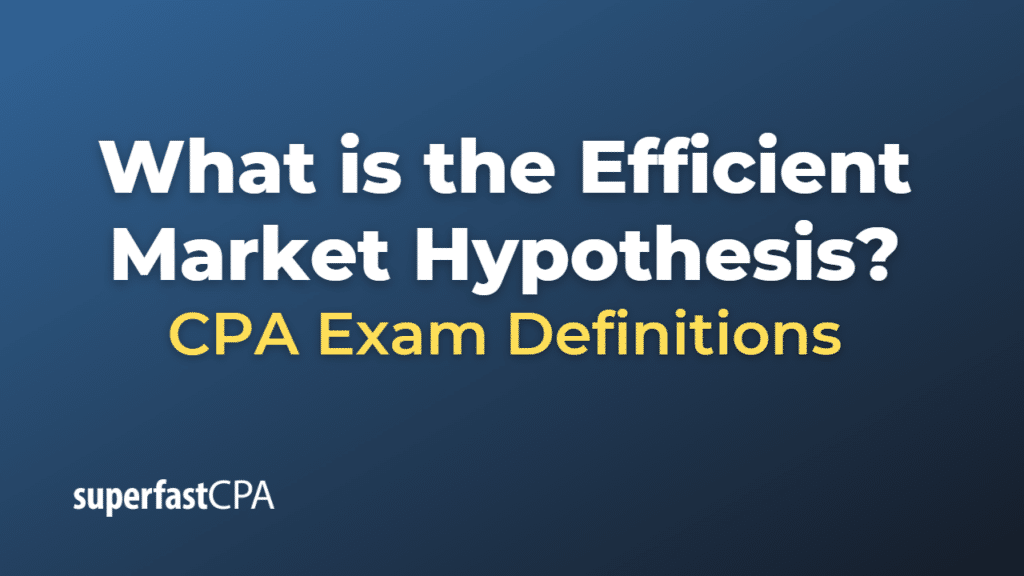Efficient Market Hypothesis
The Efficient Market Hypothesis (EMH) is a theory in financial economics that suggests that financial markets are always perfectly efficient. This means that it’s impossible to consistently achieve higher than average returns (after adjusting for risk and transaction costs) because stock prices already fully reflect all relevant information.
The idea is that because information is disseminated so quickly and widely, it’s nearly instantly incorporated into market prices. Thus, at any given time, stock prices are a fair reflection of all known information and provide an accurate indication of a company’s intrinsic value.
There are three forms of the Efficient Market Hypothesis:
- Weak Form EMH: This form asserts that all past prices and volume information are reflected in current prices. In other words, technical analysis methods are not going to consistently produce excess returns, though fundamental analysis (looking at earnings, dividends, etc.) may still provide insight for investment.
- Semi-Strong Form EMH: This form suggests that all publicly available information is already incorporated into current prices. This means neither technical analysis nor fundamental analysis can be used to achieve consistently higher returns.
- Strong Form EMH: This form claims that all information, both public and private (or inside information), is fully reflected in stock prices. Therefore, no one can consistently achieve excess returns.
The Efficient Market Hypothesis is a cornerstone of modern finance theory, but it’s also a subject of critique and extensive debate among academics and practitioners. While markets may appear to be efficient most of the time, there are periods in which they behave inefficiently, such as during market bubbles and crashes. This suggests that it’s possible, albeit difficult and risky, for investors to outperform the market.
Example of the Efficient Market Hypothesis
Let’s take an example that illustrates the semi-strong form of the Efficient Market Hypothesis (EMH).
Imagine that a large tech company, TechFin Corp, is expected to release its quarterly earnings report. The market anticipates that the company will report earnings of $1.50 per share. If the Efficient Market Hypothesis holds true, this expectation should already be incorporated into the current price of TechFin Corp’s shares.
Now, suppose TechFin Corp releases its earnings report and surprises the market by announcing earnings of $1.70 per share, significantly higher than expected. According to the semi-strong form of the EMH, the market should respond almost instantaneously to this new information. The price of TechFin Corp’s shares should rise immediately to reflect the higher than expected earnings, and all investors buying the stock after the announcement will pay a price that has already incorporated this new information.
Consequently, an investor wouldn’t be able to earn an abnormal profit by purchasing the stock after the announcement, because the positive news is already reflected in the new, higher stock price.
Of course, this is an idealized example. In reality, markets might not always adjust instantly, and some investors might indeed earn abnormal profits by trading on new public information. However, the Efficient Market Hypothesis suggests that such opportunities should be rare and unpredictable, making it difficult to consistently beat the market by trading on public news.













